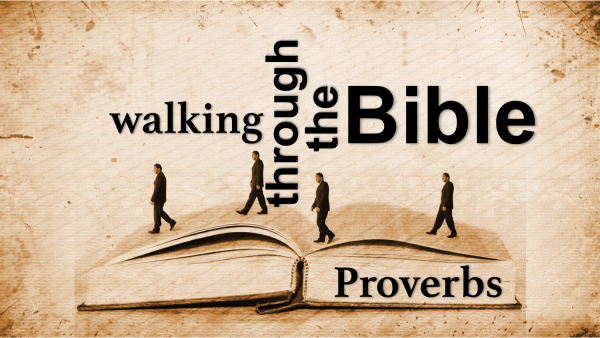The “book of Proverbs” is not a name but rather a description, for that is what it holds. It is a book comprised of divinely inspired proverbs intended for men’s benefit by revealing wisdom of heavenly origin. The word “proverb” is defined by Britannica World Language Dictionary as, “A pithy saying, especially one that condenses the wisdom of experience into an adage, or maxim.” The term has been applied cross-culturally to various statements of value, for example: Chinese proverb or Turkish proverb. These proverbs, though, have no cultural distinction because they are original only with God, proven by the scriptures.
Authorship is identified by the writer. “The proverbs of Solomon the son of David, king of Israel…” (Proverbs 12:1). Knowing then that the book in its entirety was penned by Solomon, closer attention can be given to the wisdom contained itself. It was in I Kings 3 where Solomon, then reigning king, was found righteous and pleasing unto God. His righteousness was demonstrated by going unto Gibeon where he offered a thousand burnt offerings unto Jehovah. The Lord responded to Solomon’s reverence by telling him to “ask what I shall give thee” (I Kings 3:5). Solomon’s already wise request was:
“And now, O Lord my God, thou hast made thy servant king instead of David my father: and I am but a little child: I know not how to go tout or come in. And thy servant is in the midst of thy people which thou hast chosen, a great people, that cannot be numbered nor counted for multitude. Give therefore thy servant an understanding heart to judge thy people, that I may discern between good and bad: for who is able to judge this thy so great a people?” (I Kings :7-9).
Thus with Solomon’s request for divine wisdom to be given by which he could justly rule over the people did such come. The Lord gave to Solomon “a wise and an understanding heart; so that there was none like thee before thee, neither after thee shall any arise like unto thee” (I Kings 3:12). Keeping these events in mind, it easily is concluded then that the wisdom expressed in the book of Proverbs was that received from God, through inspiration.
Not only, though, is the authorship determined by the text, but likewise is the purpose:
“…to know wisdom and instruction; to perceive the words of understanding; to receive the instruction of wisdom, justice, and judgment, and equity; to give subtlety to the simple, to the young man knowledge and discretion. A wise man will hear, and will increase learning; and a man of understanding shall attain unto wise counsels: to understand a proverb, and the interpretation; the words of the wise, and their dark sayings” (Proverbs 1:2-6).
The themes may, and do, vary; but the purpose is unified: to declare and provide wisdom. A brief word on what wisdom is, though, might prove to be beneficial.
In short, wisdom is the practical application of knowledge. In the same way one could hear or read something and yet not comprehend it, so can a person be knowledgeable in some area without having wisdom in it. It is one things to know what the scriptures say and another thing entirely to put them into practical application. An atheist may know the scriptures but without putting them to practice he remains unwise. Wisdom demands knowledge, but knowledge does not demand wisdom. Solomon knew God’s will, but he still sought the wisdom to apply it during his kingship. This is the priceless value of the book of proverbs: it teaches man to apply what he otherwise may only know.
Among the many great applications provided by the proverbs, among the greatest would be in regard to personal duties. Scattered amongst the proverb are the entirety of man’s duty in life. First is man’s duty to God. This is the first and foremost to which man’s entire being is to be dedicated (Ecclesiastes 12:13). Second is man’s duty to self. This draws off his duty to God as fulfilling duty to self is contingent upon his duty to God. Third is man’s duty to his family. Outside his responsibility to self, there is no more pressing need, spiritually, than in one’s own home. Then, fourth is man’s duty toward his neighbor. Once self and family is tended to, man must look outward to the rest o the world to call them back to God.
Christ is pictured in Proverbs as the personification of wisdom. Wilkinson and Boa summarize these thoughts: “It is divine (8:22-31), it is the source of biological and spiritual life (3:18; 8:35-36), it is righteous and moral (8:8-9), and it is available to all who will receive it (8:1-6, 32-35).” These attributes came incarnate through Christ as He became flesh for the sake of man, but first they were pictured in the proverbs.
The book of Proverbs is one of great influence regarding the manner of life even now expected among men by God. It is a timeless book that should forever be studied and applied. In it are valuable truths that shall stand throughout eternity.
-Andy Brewer

